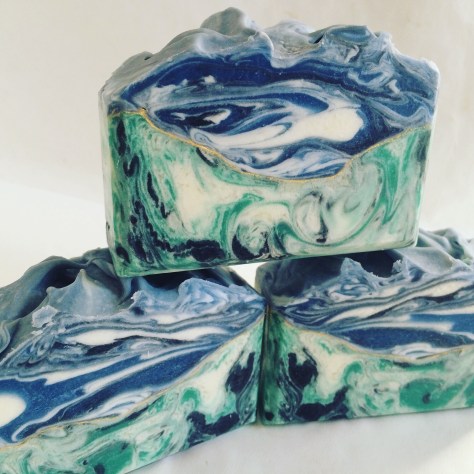

Happy St. Patrick’s Day!
I have always had a special connection to St. Patrick’s Day. It’s my half-birthday, which may seem like a silly thing for a woman my age to pay attention to, but you remember when you were a kid, and the distinction “and a half” was important? Even though that distinction is no longer important to me, and about 87% of the time I can’t even remember how old I am, never mind the half, I still feel like St. Patrick’s Day is a special day. Not just because I’m about half Irish, really, because the importance of the holiday in Ireland is somewhat lost given how long ago it was that most of my ancestors immigrated to America and also given its diluted nature in the States. We might lift a pint of Guinness and wear green. We might even go to a parade, depending on the concentration of Irish descent in our neck of the woods. But it’s really not a holiday in America the way it is in Ireland. My Irish ancestry is so far removed at this point that I actually don’t feel all that Irish.
Except… In some ways I do. When I took Celtic Literature in college, I really responded to the Irish and Welsh myths that we studied in ways I didn’t, necessarily, to Greek and Roman myths. I also respond in a visceral way to Celtic music—fiddles, whistles, Uillean pipes, and bodhráns speak to some part of me that goes deeper than my general love for music. Same with bluegrass or Appalachian music. I don’t always count it my favorite kinds of music to listen to, but if I hear it, it stirs something deeper inside me than even some of my favorite music does. It’s one of the reasons why Sharyn McCrumb’s novel Songcatcher was so moving to me. I responded to the idea of music traveling through DNA.
But there are no recipes that have been passed down, at least not traditionally Irish ones. There are no stories about family in the “old country.” I’ve tried to trace my family to Ireland using a paper trail, but it’s nearly impossible. Or I should say it has been up until now. I was actually surprised that a DNA test confirmed I had such a high percentage of Irish ethnicity. I expected to be quite English, and I was a tiny, tiny bit English, and that was all.
Tomorrow I’ll be putting a different DNA test from a different company in the mail. This company allows you to do a bit more with your results than the other test I had. It also has a larger user base, so I can potentially find more relatives as well as learn more about my genetic history than the first test I took will tell me. I wish you could just port your test results over from one place to another, but I guess it doesn’t work like that. I will be interested to see how the results from each test compare, since they focus on different aspects. I’ve been watching a lot of back episodes of Henry Louis Gates’s show, Finding Your Roots. Gates has Irish ancestry, just like I do. I learned watching an episode last night that about 1 in 10 Americans do. Gates tests the DNA of all of the guests on his show and compares them. Bill Maher and Bill O’Reilly were shocked (and I think mortified) to discover they’re related. One thing you learn about watching shows like this, however, is that we all are related and woven into this great tapestry of humanity. And we all have stories. If more people realized what connected us rather than focused on what separated us, it might be more beautiful world.
On this day when everyone’s Irish, may the luck of the (half) Irish smile on you.
 Slice of Life is a daily writing challenge during the month of March hosted by Two Writing Teachers. Visit their blog for more information about the challenge and for advice and ideas about how to participate.
Slice of Life is a daily writing challenge during the month of March hosted by Two Writing Teachers. Visit their blog for more information about the challenge and for advice and ideas about how to participate.
























